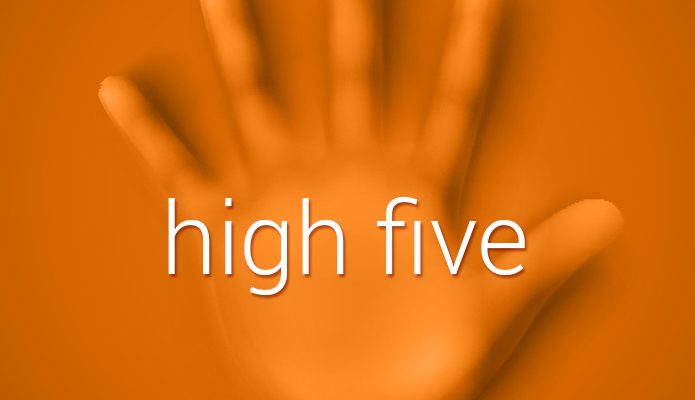What do the library at the University of Ottawa and Dan Levy, who played David on Schitt’s Creek, have in common? The Indigenous Canada MOOC! Librarians at the University of Ottawa also provided opportunities for colleagues to complete the MOOC in 2019 – 2020.

Right to Know
The first Freedom of Information (FOI) law was passed in Sweden in 1766, 250 years ago. On September 28th, also known as International Right to Know Day (RTK), citizens and civil liberty groups celebrate access to information laws (or demanding reform) – laws designed to ensure public access to information and institutional accountability to citizens and taxpayers.
The ten founding principles of RTK are:
- Access to information is a right of everyone.
- Access is the rule—secrecy is the exception!
- The right applies to all public bodies.
- Making requests should be simple, speedy, and free.
- Officials have a duty to assist requesters.
- Refusals must be justified.
- The public interest takes precedence over secrecy.
- Everyone has the right to appeal an adverse decision.
- Public bodies should pro-actively publish core information.
- The right should be guaranteed by an independent body.
You might be surprised to know that the original 15 signatories to RTK Day are not countries we always think of as transparent or promoting citizen access to state information. They were: Albania, Armenia, Bosnia and Herzegovina, Bulgaria, Georgia, Hungary, India, Latvia, Macedonia, Mexico, Moldova, Romania, Slovakia, South Africa, and the United States.
Where does Canada fall with respect to Access to Information? Read on.
1. Canadian Office of the Information Commissioner
Right to Know is coordinated by the Canadian Office of the Information Commissioner who is currently Suzanne Legault. A lot of information is available at the OIC site, and Suzanne’s blog, including all of her speaking notes, happenings in Canadian Access to Information (ATI), annual reports, legislative interventions, investigation summaries, etc. There is also an online form for filing a formal complaint if an ATI request was mishandled, is taking too long, or is inadequate in any way. Be warned however: investigations take time and it can be several months to a year before complaints are investigated and resolved. This should not discourage you from filing an ATI or a complaint however: it is important to use this right as a citizen.
2. What’s Happening in Your Area?
In 2016, Canada elebrated RTK week during September 26 – October 2. Look here for events held throughout Canada.
3. Freedominfo.org
freedominfo.org is a portal that contains “best practices…lessons learned…campaign strategies and tactics, and links the efforts of freedom of information advocates around the world.” It tracks countries that have recently passed FOI laws (Tanzania, Kenya, Sri Lanka, Togo for example have all recently passed legislation), provides special in-depth reports and articles on initiatives and important campaigns around the globe, has links to external information and importantly, contains links to the various indexes that measure transparency and ATI in various countries. For example, last year, Canada ranked 44th in transparency out of 105 countries (up a few places from previous years) but is still behind Liberia, El Salvador, Sierra Leone, South Sudan and Yemen to name a few. What is going on in Canada that we rank so far down the list? We don’t have a dictator here and our public institutions are supposed to be accountable. It might be worth noting that we are ahead of the USA (51) and the Netherlands (57). But still, what explains the ranking? One factor when examined more closely is that Canada received only 14 out of a possible 30 points on the “scope” element (this describes who has access to what information) because our laws only allow citizens and residents to take advantage of ATI. Another factor for the low score is that our laws do not apply to the offices of various Cabinets (each federal department is a Cabinet) or to the Prime Minister. There are a number of other weaknesses in our legislation, which can be read here.
4. Journalists
RTK is not only available to citizens. In Canada, journalists have an obligation to provide media consumers with accurate and comprehensive information. The Code of Ethics for the Quebec Press Council, for example, specifically address the public’s right to know. Of course, in order to provide all of the information necessary to understand the world around us, journalists also must have access to state information. During the recent Conservative federal government (2006-2015) journalists complained bitterly of not being able to access information, and became more and more reliant (some even say entirely reliant) on ATI – a long, sometimes expensive, and slow process which might or might not yield results. See the statement by the Quebec Press Council on access to government information and the Canadian Journalists for Free Expression.
5. Ken Rubin
Ken Rubin is a private citizen who has made a career out of ATI. If you need advice on how to make an access request, his site is very helpful.
I hope these resources will encourage you to explore the world of ATI if you haven’t already. Information is at the heart of librarianship but also at the heart of responsible and responsive government.
Jennifer Dekker is a Subject Specialist Librarian at the University of Ottawa serving the Faculty of Arts. She can be reached at jdekker [at] uottawa.ca.
The High5 column brings together 5 key projects, databases or tools about subjects or issues of consequence to libraries and library users.
